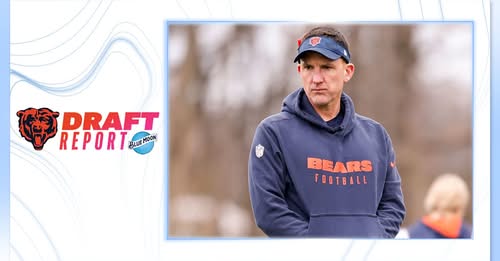
Dennis Allen: He’s smart, he’s tough and he’s highly competitive, and those are three characteristics that we’re looking for
In the world of professional football, coaching is a job that requires not just a deep understanding of the game but a strong mental fortitude, a relentless competitive drive, and the ability to connect with players, foster teamwork, and make strategic decisions that can lead a team to victory. For Dennis Allen, these characteristics are not just buzzwords but are key components of his coaching identity.
Dennis Allen’s journey into the NFL coaching ranks began in the heart of Texas, where football holds a revered place in local culture. Born on September 22, 1972, in Dallas, Texas, Allen grew up in an environment where sports, particularly football, played a pivotal role in shaping his character. His father, Grady Allen, was a coach, and this connection to football, combined with a natural talent for the game, allowed Dennis to develop an early understanding of what it takes to succeed both on and off the field.
Before becoming a coach, Allen’s playing career was rooted in defense. He played as a defensive back in college at Texas A&M University and then briefly in the NFL. Although his playing career didn’t reach the highest of heights, it was enough to give him a strong foundation for his coaching aspirations. Through this experience, Allen became intimately familiar with the intricacies of defensive play and the crucial role it plays in a team’s success. However, it was his ability to understand the game from a strategic standpoint and his passion for coaching that ultimately led him into a career behind the sideline, rather than in the trenches.
One of the most important characteristics that Dennis Allen has consistently demonstrated throughout his coaching career is his football intelligence. To be smart in football is not simply about knowing the X’s and O’s of the game; it’s about the ability to analyze situations, make quick decisions, adapt to changing circumstances, and anticipate the moves of opponents. This type of football intelligence comes from years of experience and a deep understanding of strategy and tactics.
From the moment Allen began his coaching career in 2002, his ability to break down film, study opponents, and craft game plans became apparent. He began his NFL coaching career as a defensive assistant with the Atlanta Falcons, before moving on to other teams such as the New Orleans Saints and the Denver Broncos, eventually landing a role as the defensive coordinator for the Oakland Raiders in 2012. Over the years, his defensive units became known for their discipline, adaptability, and effectiveness—traits that directly stemmed from his tactical acumen.
Allen’s time with the New Orleans Saints in particular allowed him to hone his defensive skills under the tutelage of one of the NFL’s most respected coaches, Sean Payton. During his tenure with the Saints, Allen became known for his ability to adjust his defensive strategies to counteract opposing offenses. His deep understanding of the game allowed him to craft unique defensive schemes that forced opposing quarterbacks to make difficult decisions and play at their limits.
As the head coach of the New Orleans Saints’ defense, Allen helped the team win a Super Bowl (XLIV) in 2010. His ability to work in concert with his coaching staff and to exploit the weaknesses of opposing offenses was one of the key factors in the Saints’ defensive success during that period. For Allen, being smart on the field meant being flexible—knowing when to blitz, when to drop into coverage, and how to match up with specific offensive threats.
When Allen took over as the head coach of the Raiders in 2012, he was tasked with turning around a team that had struggled in recent years. His defensive philosophy emphasized toughness and smarts, traits that he believed were necessary to compete at the highest level. He was known for his ability to break down the game into smaller, more manageable pieces, allowing his players to see how every play contributed to the overall strategy.
As a defensive coordinator, Allen’s ability to adjust his game plans based on opponent tendencies was a major asset. Whether he was dealing with a high-flying offense or a run-heavy team, he was able to tailor his schemes to meet the unique challenges posed by each matchup. The hallmark of his intelligence as a coach is his ability to adapt quickly, which is essential in today’s fast-paced, ever-evolving NFL landscape.
Dennis Allen’s toughness goes beyond the physical—though as a former player, he certainly has a solid understanding of the physical aspects of the game. However, his toughness is rooted in his mental resilience, his ability to overcome adversity, and his unwavering focus in the face of challenges. The ability to stay composed under pressure and to remain determined despite setbacks is what sets the truly great coaches apart from the rest. Dennis Allen has been tested in a variety of ways throughout his career, and each time, he has shown that he is more than capable of weathering the storm.
Allen’s tenure as the head coach of the Oakland Raiders was undoubtedly a period of challenge. He inherited a team that had not experienced much success in recent years, and the Raiders were in a rebuilding phase. He faced criticism for the team’s performance during his time as head coach, but he never backed down. Instead, he remained steadfast in his approach, focusing on developing the team’s foundation and instilling a sense of accountability among his players.
Despite facing setbacks and enduring difficult seasons, Allen’s commitment to improving the Raiders’ defense was unwavering. His toughness was evident in how he handled the criticism that came with being the head coach of a struggling franchise. Rather than crumbling under the pressure, he worked tirelessly to address the team’s weaknesses, most notably the defense, which had ranked near the bottom of the league before he arrived.
When he moved on to become the defensive coordinator for the Denver Broncos in 2015, Allen once again showed his mental resilience. During his time with the Broncos, he was instrumental in developing one of the NFL’s top defenses, which helped the team win Super Bowl 50. Allen’s tough, gritty defensive schemes were a key factor in shutting down some of the league’s most high-powered offenses, and his ability to stay focused in high-pressure moments helped the Broncos succeed when it mattered most.
Throughout his coaching career, Allen has always maintained an unshakable belief in his players and his coaching philosophy. His toughness is reflected in how he handles adversity—he uses setbacks as motivation, and through sheer determination, he inspires his players to do the same.
Football is a game that requires an unrelenting competitive spirit, and Dennis Allen embodies this trait to the fullest. The competitive nature that drives him is evident in how he approaches every game, every season, and every opportunity. To be competitive in the NFL means constantly striving for excellence, learning from losses, and using those lessons to fuel future success.
Allen’s competitiveness can be traced back to his playing days and has only intensified throughout his coaching career. As a coach, Allen has made it clear that he is always seeking ways to improve and to get the most out of his players. His intensity during practices, his attention to detail, and his constant focus on winning all speak to his deep desire to be successful in everything he does.
As the head coach of the New Orleans Saints’ defense, Allen’s competitiveness was a driving force behind the team’s Super Bowl victory in 2010. He was determined to field a defense that could make critical plays in clutch moments, and his ability to put his players in positions where they could succeed was a direct result of his competitive nature. It wasn’t just about winning games; it was about winning in every aspect of the game. He demanded that his players be mentally tough and always strive for greatness.
After moving on from the Raiders and Broncos, Dennis Allen returned to the New Orleans Saints in 2022, this time as the team’s head coach. His competitiveness didn’t fade with age; instead, it evolved. He took over a team that was in need of leadership and direction, and he brought with him the same level of drive that had served him so well in previous roles. His focus was squarely on returning the Saints to the playoff picture, with a defense that was once again strong, fast, and capable of closing out games when it mattered most.





